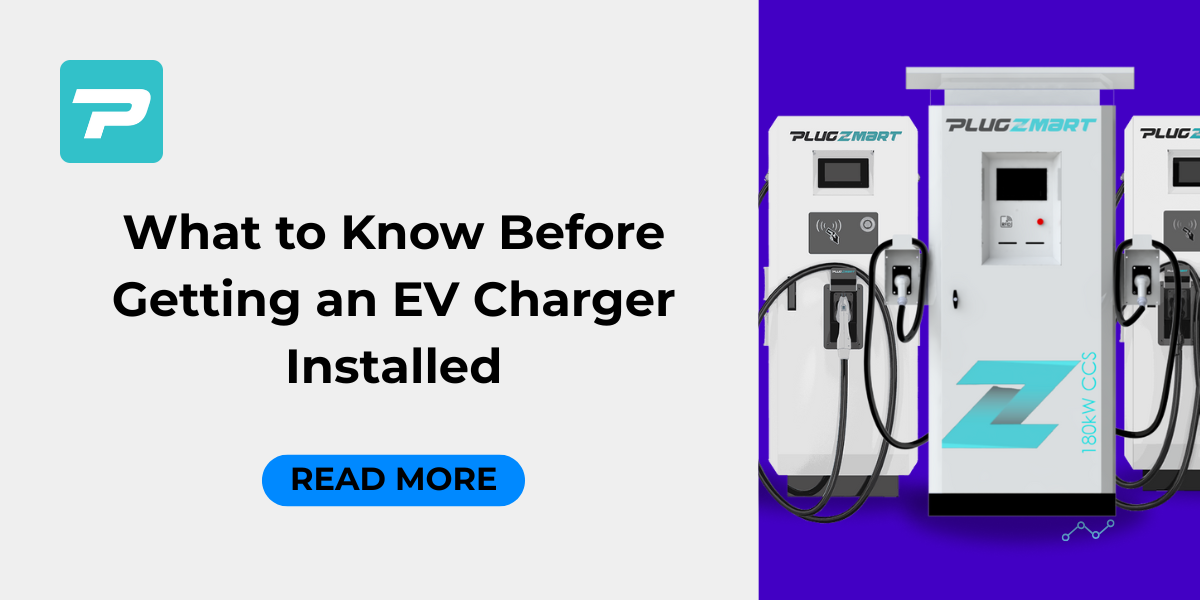As electric vehicles (EVs) become the new norm on Indian roads, the demand for reliable EV charging stations is growing rapidly. Whether you’re a homeowner planning to install a home charger or a business looking to set up a public charging point, understanding what goes into an EV charger installation is essential.
Before you make the switch, here’s everything you need to know — from choosing the right charger type to exploring the latest trends shaping the EV charging industry.
1. Understanding EV Chargers and Their Types
Not all EV chargers are the same. The installation type depends on how fast you want your EV to charge and where you plan to use it.
a. AC Chargers (Home and Commercial Use):
AC chargers, typically 3.3kW to 22kW, are perfect for homes, apartments, and workplaces. These chargers slowly charge your vehicle over a few hours — ideal for overnight or long-stay charging.
b. DC Fast Chargers (Public and Fleet Use):
DC fast chargers are designed for quick top-ups in high-demand areas like highways, malls, or fleet depots. With power capacities starting from 30kW and going up to 120kW or more, they can charge most EVs to 80% in under an hour.
When planning your EV charging station installation, it’s essential to balance charging speed, power availability, and cost to ensure optimal results.
2. Site Readiness: Power Supply and Location
Before installing an EV charger, assess your site’s electrical infrastructure. You’ll need:
- Sufficient power supply capacity: Ensure your electrical panel can handle additional load.
- Proper earthing and safety compliance: Follow BIS and CEA guidelines for installation safety.
- Ideal location: Choose a spot that’s easy to access, weather-protected, and has enough parking space.
If you’re setting up a commercial EV charging station, factor in network connectivity and billing setup to monitor and manage charging sessions remotely.
3. Why a Smart Charging System Matters
EV charging is no longer just about plugging in — it’s about smart energy management. A smart Charging Management System (CMS) helps operators and users monitor usage, control access, and optimize energy costs.
With the Plugzmart EV Charging Management System, businesses and charge point operators can gain complete control over their charging network. The system allows real-time monitoring, remote diagnostics, and secure payment integration — all from a single dashboard.
If you’re a brand or company looking to offer EV charging solutions under your name, Plugzmart White-label CMS enables you to customize the platform with your branding, giving your customers a seamless, professional charging experience.
4. Key Benefits of Installing an EV Charger
Investing in an EV charger offers benefits beyond convenience:
For Homeowners:
- Ease and comfort: Charge overnight and wake up to a fully powered vehicle.
- Cost savings: Home charging is typically cheaper per unit than public stations.
For Businesses:
- Customer attraction: Offering EV charging can increase foot traffic and dwell time.
- Sustainability branding: Demonstrates your commitment to clean energy and green mobility.
- Revenue generation: Paid charging options add a new income stream.
EV-ready infrastructure is quickly becoming a must-have feature in residential and commercial projects across India.
5. Emerging Trends in EV Charging
The EV charging landscape is evolving rapidly. Here are a few trends to watch:
- Integration with renewable energy: Solar-powered EV chargers are on the rise, reducing grid dependency.
- Fleet electrification: Corporate fleets and logistics companies are adopting DC fast chargers to cut operational costs.
- OCPP-based interoperability: Open Charge Point Protocol (OCPP) ensures compatibility across multiple charger brands and platforms.
- Mobile app control: Drivers can now locate chargers, check availability, and make payments directly through mobile apps.
With such advancements, EV charging is becoming more accessible, intelligent, and sustainable than ever before.
6.Take the Next Step Toward Smarter Charging
Installing an EV charger is more than a convenience — it’s an investment in the future of clean mobility. Whether you’re a business, fleet operator, or homeowner, the right charging setup can save energy, time, and costs in the long run.
Explore Plugzmart EV Chargers to find high-quality AC and DC chargers that fit your needs. Pair them with a smart management system and unlock full control over your charging operations.
Frequently Asked Questions (FAQ)
Q1. Can I install an EV charger at home?
Yes. Most EV owners install a 7kW AC home charger. It’s compact, safe, and ideal for overnight charging.
Q2. How long does it take to charge an EV?
A 7kW AC charger typically takes 6–8 hours for a full charge, while a 60kW DC fast charger can reach 80% in 45–60 minutes.
Q3. Do I need special permissions to install an EV charger?
In most cases, you need approval from your local electricity board or DISCOM. For commercial setups, adherence to local EV policy guidelines is mandatory.
Q4. How much does installation cost?
Installation costs vary based on charger type, wiring complexity, and power supply. It’s best to get a site evaluation before proceeding.





Comments